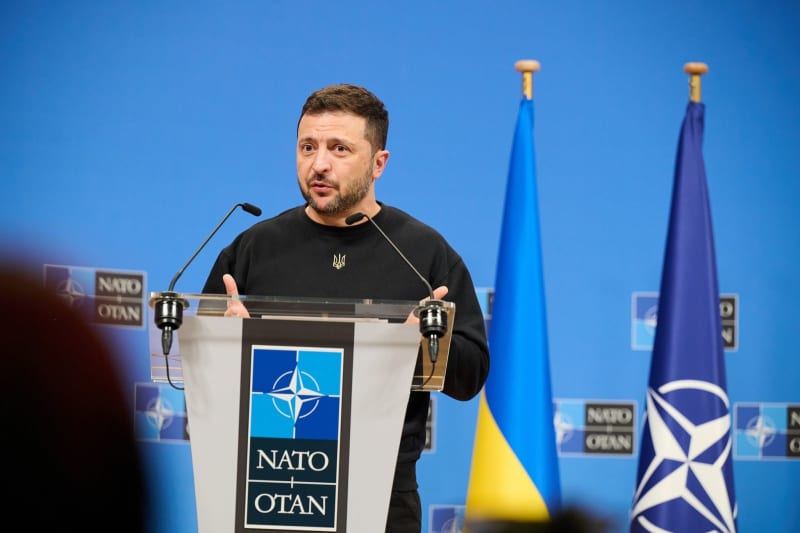Ukraine is doing everything it can to rid its territory of landmines and other explosive remnants of war, but needs the support of its partners, Deputy Prime Minister Yulia Svyrydenko said on Thursday.
Svyrydenko was speaking at an international conference on demining in the Swiss city of Lausanne, also attended by Ukrainian Prime Minister Denys Shmyhal.
Large parts of Ukraine are contaminated by hundreds of thousands of mines, cluster munitions and unexploded ordnance left in combat areas by Russian and Ukrainian forces.
The conference brought together representatives from approximately 50 countries, as well as demining organizations, scientists and companies that manufacture demining equipment.
Peter Reuss of the German Foreign Ministry said Berlin contributes around 20 million euros annually to the demining effort.
He said he hoped the conference would provide “new insights into how mines and explosive remnants of war could potentially be cleared faster, more effectively and cheaper.”
Artificial intelligence (AI) was a “big topic” at the conference, Reuss told dpa. For example, AI could be used to detect where mines are located, he said.
Svyrydenko said Ukraine has already cleared 35,000 square kilometers of land, partly with homemade machines. This was done not only to allow people to return to their villages, but also to restore the fields. Millions of people worldwide depend on Ukrainian wheat.
Ukraine is the most heavily mined country in the world
Land mines, cluster munitions, unexploded grenades, rockets or downed combat drones can explode if accidentally touched or handled.
Since the large-scale Russian invasion in February 2022, Ukraine has suffered more than a thousand casualties from mines and unexploded ordnance, killing around 300 of them.
The United Nations considers Ukraine to be the country with the most mines in the world. An area larger than Greece, plus mined maritime areas, are considered potentially dangerous.
The United Nations Development Program (UNDP) says only 10% of the area may actually be infected, but the entire territory must be searched.
“These risks negatively impact the lives of more than six million Ukrainians,” said Ruslan Berehulia, head of Ukraine’s National Demining Service.
Special circumstances
There are special circumstances in Ukraine that make the situation different from other countries affected by landmines. For starters, Russia has laid mines in denser concentrations than almost any other country, says Gary Toombs of the organization Handicap International, which helps mine victims and people with disabilities worldwide.
On the other hand, there are new technologies: for example, mines that are activated by changes in the magnetic field or vibrations in the ground, which further complicates clearing.
Jaco Cilliers, a representative of the United Nations Development Program (UNDP) in Ukraine, explained that farmers cannot cultivate their fields, damaged power stations remain out of service and civilians continue to be displaced from their homes because of the mines.
As a result, the economy also remains partially paralyzed. On the front lines, the army is responsible for clearing mines, while the mine clearance authority is responsible for major infrastructure.
Humanitarian mine clearance
In villages and fields, the focus is on so-called humanitarian mine clearance, experts explain.
In many cases, fields must be scanned meter by meter with metal detectors after the machines are used for the first time, says Markus Schindler. The 36-year-old works for FSD, a Swiss foundation for mine clearance.
It took minesweepers several months to clear two football fields in the Kharkov region, he explained. Every piece of shrapnel had to be removed to keep the players safe. Elsewhere, however, areas ten times larger can be cleared in just a few weeks.
UNDP bond issuance proposal
The UNDP has suggested that the Ukrainian government issue bonds linking demining to the introduction of sustainable agricultural practices. The UNDP has suggested that proceeds from the bonds could be reinvested in mine clearance, among other things.
Ukraine estimated last year that a full clean-up operation would cost 34 billion euros.







